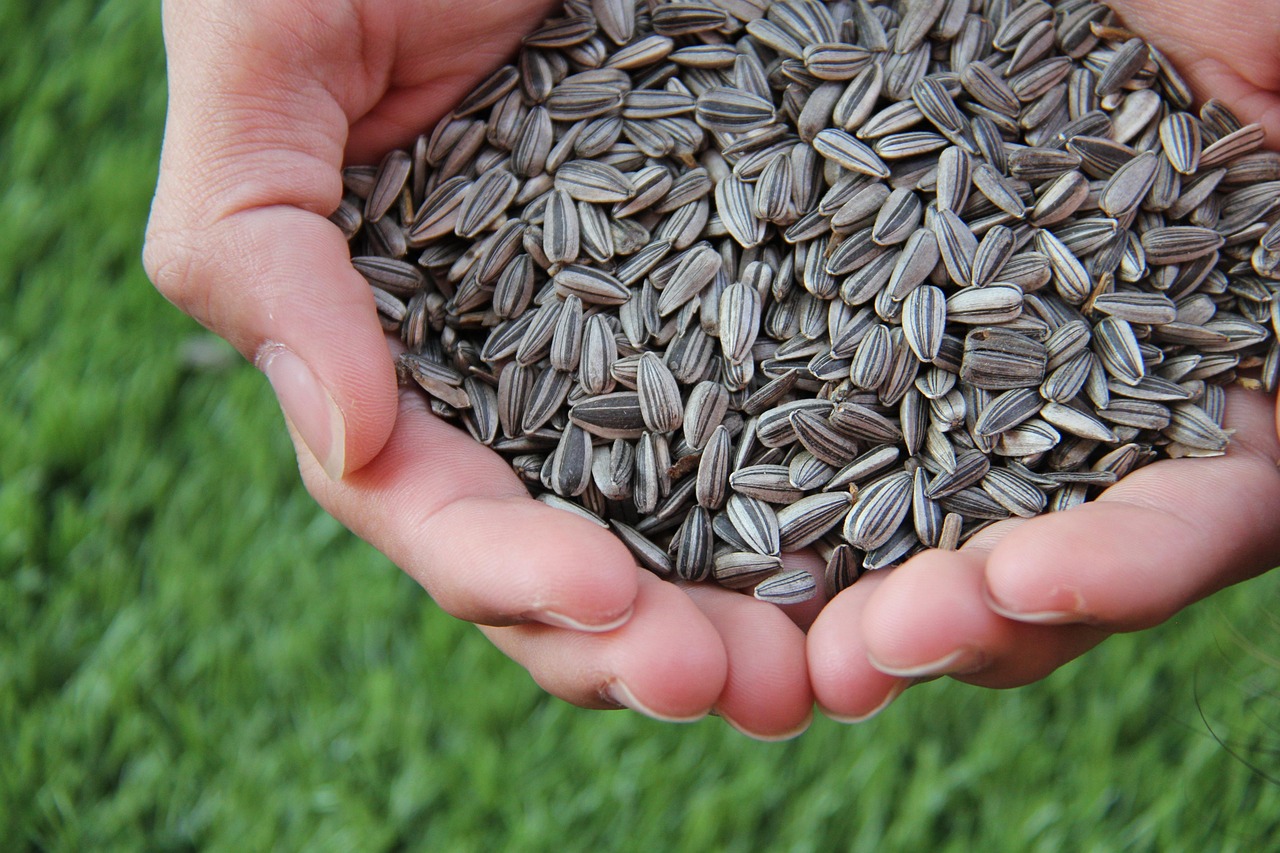When it comes to healthy snacking, sunflower seeds are often overshadowed by more popular options like almonds or walnuts. But don’t let their small size fool you—these tiny seeds pack a mighty nutritional punch. Packed with essential vitamins, minerals, healthy fats, and antioxidants, sunflower seeds are a simple yet powerful addition to your diet.
In this blog post, we’ll explore why you should include sunflower seeds in your daily meals and how they can benefit your overall health.
What Are Sunflower Seeds?
Sunflower seeds are the edible seeds of the sunflower plant (Helianthus annuus). They are typically harvested from the flower’s large seed head, which can contain hundreds of seeds. These seeds are often enjoyed roasted, salted, or raw and can be eaten as a snack, added to salads, or used as a topping for yogurt, oatmeal, and baked goods.
Nutritional Profile of Sunflower Seeds
Here’s a breakdown of the key nutrients found in one ounce (28 grams) of dried sunflower seeds:
- Calories: 164 kcal
- Protein: 5.5 g
- Fat: 14 g
- Saturated Fat: 1.5 g
- Monounsaturated Fat: 3 g
- Polyunsaturated Fat: 9 g (including omega-6 fatty acids)
- Carbohydrates: 6.5 g
- Dietary Fiber: 3 g
- Sugars: 0.5 g
- Vitamin E: 10 mg (49% of the Daily Value)
- Selenium: 22 mcg (32% of the Daily Value)
- Magnesium: 91 mg (23% of the Daily Value)
- Phosphorus: 329 mg (26% of the Daily Value)
- Copper: 0.5 mg (26% of the Daily Value)
- Folate (Vitamin B9): 67 mcg (17% of the Daily Value)
Sunflower seeds are also rich in antioxidants, including vitamin E and phenolic compounds, which help protect the body from oxidative stress.
Top Health Benefits of Sunflower Seeds
- Rich in Heart-Healthy Fats
Sunflower seeds are an excellent source of unsaturated fats, particularly linoleic acid (an omega-6 fatty acid). These healthy fats help reduce bad cholesterol (LDL) levels, support heart health, and lower the risk of cardiovascular diseases. - High in Antioxidants
Sunflower seeds are packed with vitamin E, a powerful antioxidant that protects cells from damage caused by free radicals. This helps reduce inflammation, support skin health, and lower the risk of chronic diseases like cancer and heart disease. - Supports Immune Function
The selenium in sunflower seeds plays a key role in immune function by reducing oxidative stress and supporting the production of white blood cells. Selenium also has anti-inflammatory properties that can help protect against infections. - Promotes Bone Health
Sunflower seeds are a good source of magnesium and phosphorus, two minerals essential for maintaining strong and healthy bones. Magnesium also helps regulate calcium levels in the body, further supporting bone density. - Aids in Digestion
The dietary fiber in sunflower seeds promotes healthy digestion by preventing constipation and supporting a balanced gut microbiome. Fiber also helps regulate blood sugar levels and keeps you feeling full longer. - Supports Brain Health
The vitamin E and healthy fats in sunflower seeds are beneficial for brain health. Vitamin E helps protect brain cells from oxidative damage, while omega-6 fatty acids support cognitive function and reduce the risk of neurodegenerative diseases. - Boosts Energy Levels
Sunflower seeds are rich in B vitamins, including folate and niacin, which play a key role in converting food into energy. They also contain protein and healthy fats, making them a great snack for sustained energy throughout the day. - Helps Manage Blood Sugar
The combination of protein, healthy fats, and fiber in sunflower seeds helps slow down the absorption of sugar into the bloodstream, making them a great option for people managing diabetes or blood sugar levels. - Supports Skin Health
The vitamin E in sunflower seeds helps protect the skin from UV damage and promotes a healthy, glowing complexion. The healthy fats also help maintain skin elasticity and hydration. - May Reduce Inflammation
The antioxidants and healthy fats in sunflower seeds have anti-inflammatory properties that can help reduce inflammation in the body, potentially lowering the risk of chronic diseases like arthritis and heart disease.
How to Include Sunflower Seeds in Your Diet
Sunflower seeds are incredibly versatile and can be enjoyed in a variety of ways:
- As a Snack: Eat them raw or roasted for a quick, nutritious snack.
- In Salads: Sprinkle sunflower seeds on top of salads for added crunch and flavor.
- In Baking: Add them to muffins, bread, or granola bars for a nutrient boost.
- In Smoothies: Blend sunflower seeds into smoothies for extra protein and healthy fats.
- As a Topping: Use them as a topping for yogurt, oatmeal, or avocado toast.
- In Trail Mix: Combine sunflower seeds with nuts, dried fruit, and dark chocolate for a homemade trail mix.
Fun Fact: Sunflower Seeds and History
Sunflowers are native to North America and were cultivated by Indigenous peoples for thousands of years. They were later introduced to Europe in the 16th century, where they became popular for their oil and seeds. Today, sunflower seeds are enjoyed worldwide as a nutritious and delicious snack.

Sunflower seeds may be small, but they’re a nutritional powerhouse that offers a wide range of health benefits. From supporting heart health and boosting immunity to promoting bone health and reducing inflammation, these tiny seeds are a simple yet effective way to nourish your body.
So, the next time you’re looking for a healthy snack or a way to add more nutrients to your meals, reach for a handful of sunflower seeds and enjoy all the goodness they have to offer.
What’s your favorite way to enjoy sunflower seeds?
Share your thoughts and recipes in the comments below! 🌻

